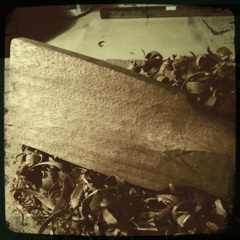As a classical guitarist, I never gave a really fantastic performance. That is my opinion after many years have passed under the bridge. There were sometimes when I thought to myself, “Yeah! Not bad at all!” But never did I leave the stage thinking that I had created a real work of art. The real root of that feeling lies in my relationship with practicing and the private aspect of performance. The simple fact of the matter was (and is): I play better in the practice room than I do in front of a crowd.
Looking at this from years of remove is interesting because it really lays out some of the baggage I have with music. We’ll set aside my discussion of why I don’t like to play other people’s tunes for another time and look at practicing, a subject that is more and more on my mind.

I spent the better part of my days between the ages of 18 and 22 in a practice room. The rooms were small with an upright piano, a chair, a music stand (if you were lucky), and a mirror. In that space, things were different. The mind was alone with the art. No one got in the way. There were no external critics or teachers, only the instrument and the hands. The kind of work that is done in a practice space is captivating. It’s also extremely private. It’s where a performer does the work that keeps the fear away.
Any time I got on stage, my hands got cold. I couldn’t feel the tips of my fingers and it made for clumsy playing. That’s straight up performance anxiety there. And it was always a problem. The guitar is a quiet instrument so there is never any sound in the chamber aside from the instrument and the breathing of the audience. That can be intimidating. My mind would wander and muscle memory would take over. I would hear the lines in a less expressive way. In short, the performance became about getting off of the stage and not making art. In a nutshell, that describes why I could never make it as a performer in that setting. It’s heartbreaking to say, but most of the time, the fear won.
But the practice room is the place you spend your time when you want even your most mechanical and rote performance to be as musical as it can be. That’s a painful way to think about it and I guess that’s why I enjoy practicing more now that my audience consists of my wife and my dog. I enjoy practicing for its own sake because it creates a deep connection with the material, when taken out of the context of preparing for a performance. When practicing for oneself, it’s an entirely different relationship with the music.
In fact, taking the performance out of my practice has muted one very important piece of the musical experience and augmented another. The idea of sharing the sound with others is gone, but the engagement with the material is brought to a new level. Ideally, a great performer does both. For me, it’s nice to take the music on its own terms like literature. And that’s where I am with my practicing today, enjoying the narrative of the process of the piece. I learn, interpret, analyze, and play but it never leaves me. I feel richer every time I do it.
0 Comments.